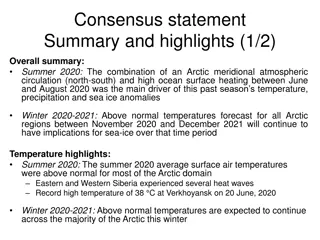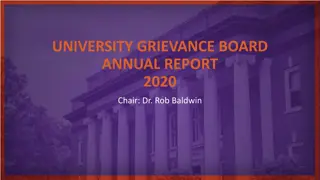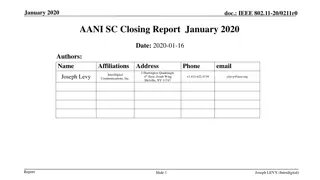
Perfect and Passive Infinitives for Effective Communication
Learn about the usage of perfect infinitives for talking about earlier events, continuous infinitives for actions in progress, and passive infinitives for present and past actions. Enhance your language skills for clearer communication.
Download Presentation

Please find below an Image/Link to download the presentation.
The content on the website is provided AS IS for your information and personal use only. It may not be sold, licensed, or shared on other websites without obtaining consent from the author. If you encounter any issues during the download, it is possible that the publisher has removed the file from their server.
You are allowed to download the files provided on this website for personal or commercial use, subject to the condition that they are used lawfully. All files are the property of their respective owners.
The content on the website is provided AS IS for your information and personal use only. It may not be sold, licensed, or shared on other websites without obtaining consent from the author.
E N D
Presentation Transcript
Perfect Infinitive ( Complex Infinitive ) To have + Past Participle
Why do we use Perfect Infinitive? We can use perfect infinitive when we want to talk about earlier time or a completed action: Jack seems to be tired today. Jack seems to have been tired today.
2. We can use perfect infinitive after when we talk about earlier events: would + like/love/hate . I would like to study languages. I would like to have studied languages. They would hate to finish the work late. They would hate to have finished the work late.
3. We use continuous infinitive for an action in progress: ( to be + Present Participle to be + Present Participle ) Our students will prevent to go over there. . Our students will prevent to be going over there. She seems to be waiting for someone. Our child seems to be sleeping.
Passive Infinitive Passive Infinitive We use simple passive infinitive for present or future actions happening to subject: ( to be + P.P. ) We use perfect passive infinitive for earlier actions: ( to have been + P.P.) My car is supposed to be washed today. It was supposed to have been repaired last month The workers want to be paid in cash. . The workers wanted to have been paid last week.










